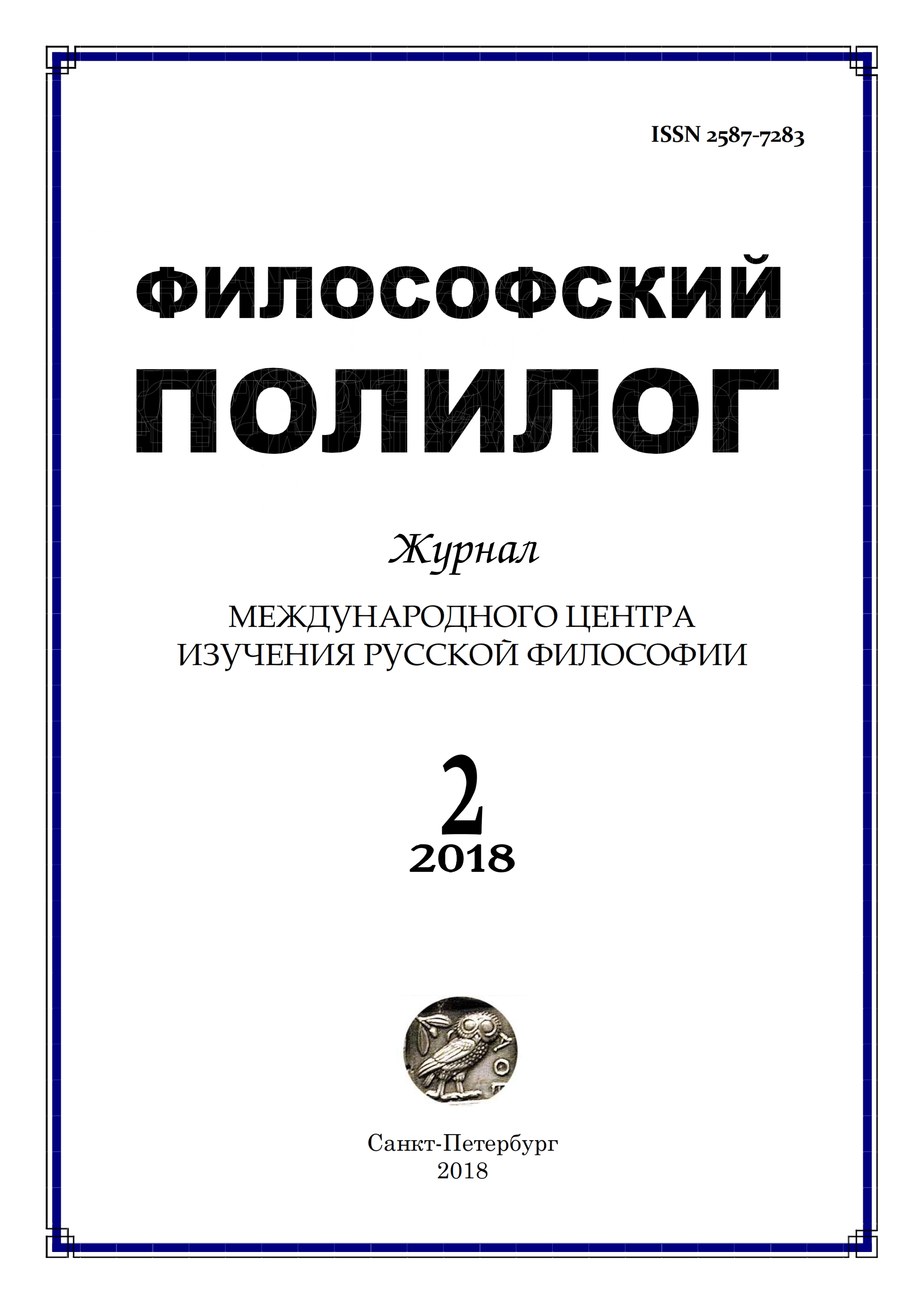Formation of the ethno-energy concept of Slavism in Ancient Russia
Abstract
For the first time the “ethnos” and “energy” concepts were connected in Lev Gumilyov’s teaching on the basis of the passionarity doctrine. The concept of “energies” and their hierarchy are considered in the article in the context of John Bennett’s researches. The ethnos is regarded as a special socio-cultural integrity developing after a passionarity stimulus and existing at the expense of an outlay and redistribution of the passional energy. The ethnos is determined by the existence of a unique structure of internal stereotypes of behavior of community members, the same outlook, a way of culturation of basic emotions, formation of cultural experiencies and feelings, assimilation and maintaining of traditions, customs, and ordinary practices. The ethno-energetic transformations of the Slavs are specifically considered and examined, the system of their external interactions with other ethnoses concerning with the Slavs, and then with the Russian ethnos in its self-identifying and/or transformation is described. Some ethno-energetic versions of the sources and features of the Slavs’ ethnogenesis, historic and cultural troubles of the all-Slavs, and then the Old-Russian super-ethnoses are offered. Except the inevitable phase transitions in ethnogenesis, some more difficult processes in centuries-old dynamics of our ancestors ethnoses – a self-induction, increasing of the system energy due to redistribution and attraction of additional energy from outside are defined. In the created Russian mentality some features of the universal feelings manifestation are considered.
References
Bennett, J.G. Dramaticheskaya Vselennaya [The Dramatic Universe], in 4 vol., vol. 2, Moscow: Profit-Stayl, 2006.
N. A. Berdyaev o russkoy filosofii [N. A. Berdyaev on Russian philosophy], in 2 vol., vol. 1, Sverdlovsk: Ural University Publishinf House, 1991.
Bondarev, A., Saraev, A. Ritmy etnokulturnoy istorii kochevyh narodov yevraziyskikh stepey v kontseptsii L. N. Gumilyova [The rhythms of the ethnocultural history of the nomadic peoples of the Eurasian steppes in the concept of L. N. Gumilyov], in Vestnik Sankt-Peterburgskogo universiteta. Spetsial'nyy vypusk k 100-letiyu so dnya rozhdeniya L. N. Gumilyova [Bulletin of St. Petersburg University. Special issue for the 100th anniversary of the birth of L. N. Gumilyov], 2012.
Verber, B. Novaya entsiklopediya otnositel'nogo i absolutnogo znaniya [New encyclopedia of relative and absolute knowledge], Moscow: Ripol Klassik, 2010.
Vernadsky, V.I. Khimicheskoe stroenie biosfery Zemli [The chemical structure of the Earth’s biosphere], Moscow: Nauka, 1987.
Gumilyov, L.N. Ot Rusi do Rossii: Ocherki etnicheskoy istorii [From Rus to Russia: Essays on ethnic history], Moscow: Ekopros, 1992.
Gumilyov, L.N. Etnogenez i biosfera Zemli [The ethnogenesis and biosphere of the Earth], Moscow: Mishel' i K, 1993.
Kravchenko, V.V. Mistitsizm v russkoy filosofii [Mysticism in Russian philosophy], in Russkya filosofiya. Entsiklopediya [Russian philosophy. Encyclopedia], ed. M. A. Maslin, 2nd ed., Moscow: Knigovek, 2014.
Kravchenko, V.V. Simfoniya chelovecheskoy kultury [The symphony of human culture], Moscow: Agraf, 2017.
Novozhilov, A.G. Problemy razvitiya passionarnoy teorii etnogeneza L. N. Gumi¬lyova [Problems of the development of L. N. Gumilyov’s passionary theory of ethno¬genesis], in Vestnik Sankt-Peterburgskogo universiteta. Spetsial'nyy vypusk k 100-letiyu so dnya rozhdeniya L. N. Gumilyova [Bulletin of St. Petersburg University. Special issue for the 100th anniversary of the birth of L. N. Gumilyov], 2012.
Damasio, A. Descartes’ error: emotion, reason, and the human brain, New York: Avon Books, 1994.
Ekman, P. Emotions revealed: recognizing faces and feelings to improve communication and emotional life, New York: Times Books, 2003.

